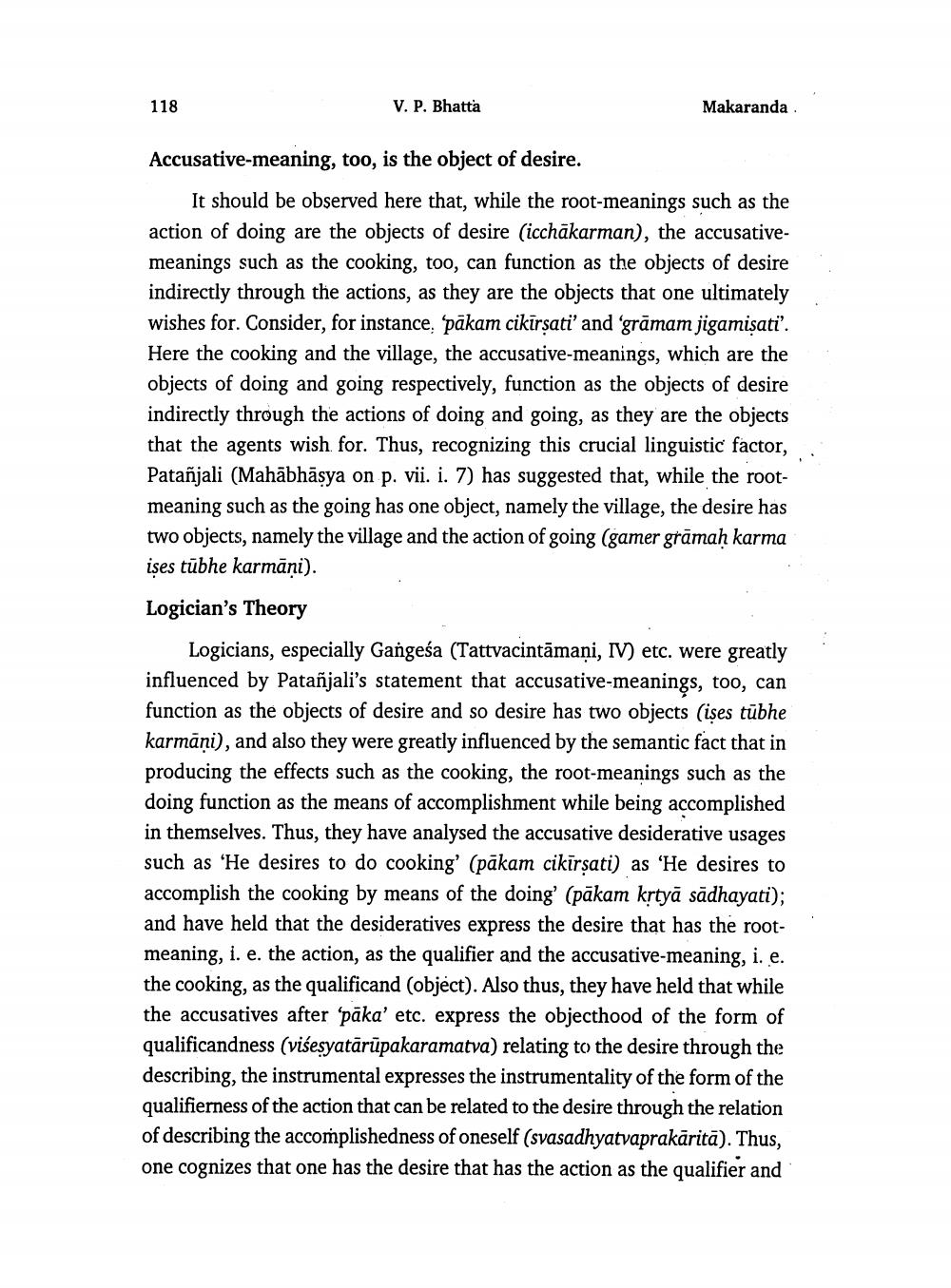________________
118
V. P. Bhatta
Makaranda
Accusative-meaning, too, is the object of desire.
It should be observed here that, while the root-meanings such as the action of doing are the objects of desire (icchakarman), the accusativemeanings such as the cooking, too, can function as the objects of desire indirectly through the actions, as they are the objects that one ultimately wishes for. Consider, for instance, pākam cikīrṣati' and 'grāmam jigamiṣati'. Here the cooking and the village, the accusative-meanings, which are the objects of doing and going respectively, function as the objects of desire indirectly through the actions of doing and going, as they are the objects that the agents wish for. Thus, recognizing this crucial linguistic factor, Patanjali (Mahābhāṣya on p. vii. i. 7) has suggested that, while the rootmeaning such as the going has one object, namely the village, the desire has two objects, namely the village and the action of going (gamer grāmaḥ karma iṣes tūbhe karmāņi).
Logician's Theory
Logicians, especially Gangeśa (Tattvacintamani, IV) etc. were greatly influenced by Patanjali's statement that accusative-meanings, too, can function as the objects of desire and so desire has two objects (ises tūbhe karmāņi), and also they were greatly influenced by the semantic fact that in producing the effects such as the cooking, the root-meanings such as the doing function as the means of accomplishment while being accomplished in themselves. Thus, they have analysed the accusative desiderative usages such as 'He desires to do cooking' (pākam cikīrṣati) as 'He desires to accomplish the cooking by means of the doing' (päkam kṛtyā sādhayati); and have held that the desideratives express the desire that has the rootmeaning, i. e. the action, as the qualifier and the accusative-meaning, i. e. the cooking, as the qualificand (object). Also thus, they have held that while the accusatives after 'paka' etc. express the objecthood of the form of qualificandness (viseṣyatārupakaramatva) relating to the desire through the describing, the instrumental expresses the instrumentality of the form of the qualifierness of the action that can be related to the desire through the relation of describing the accomplishedness of oneself (svasadhyatvaprakaritā). Thus, one cognizes that one has the desire that has the action as the qualifier and




